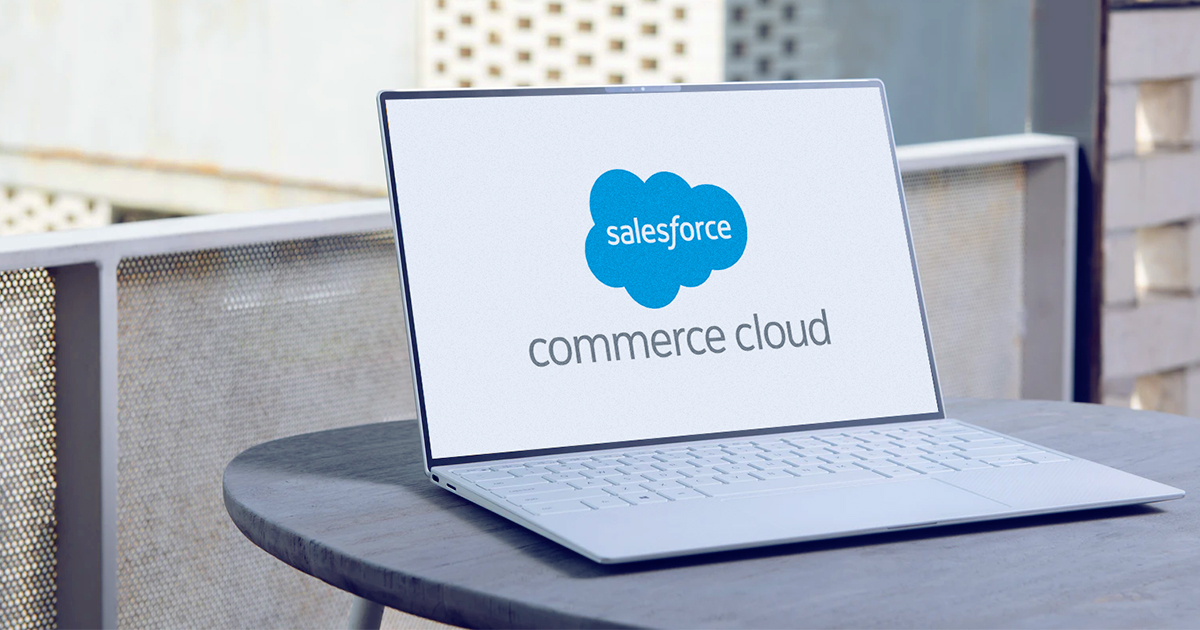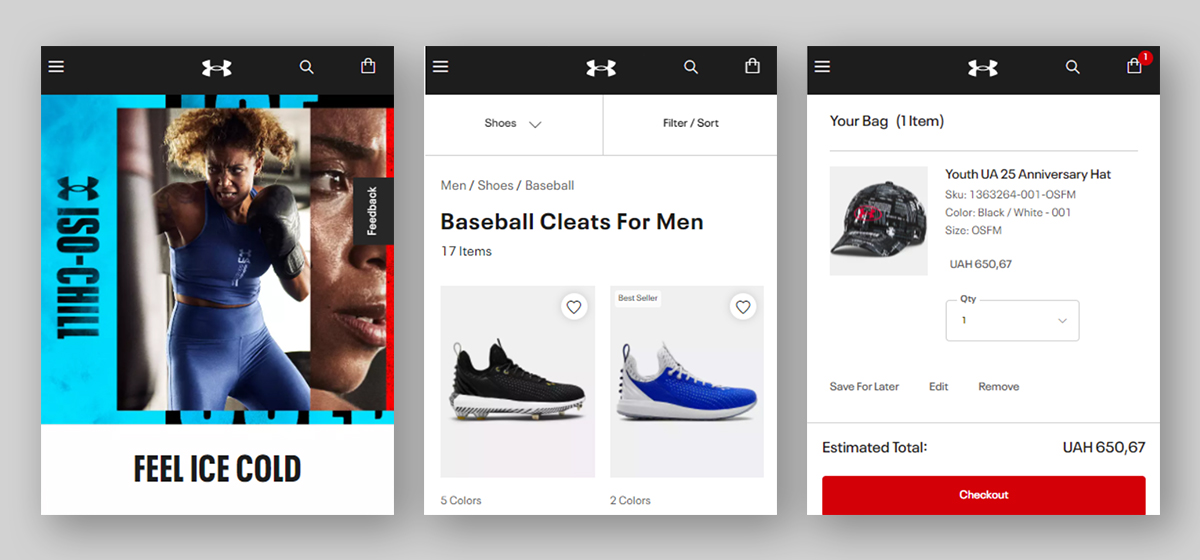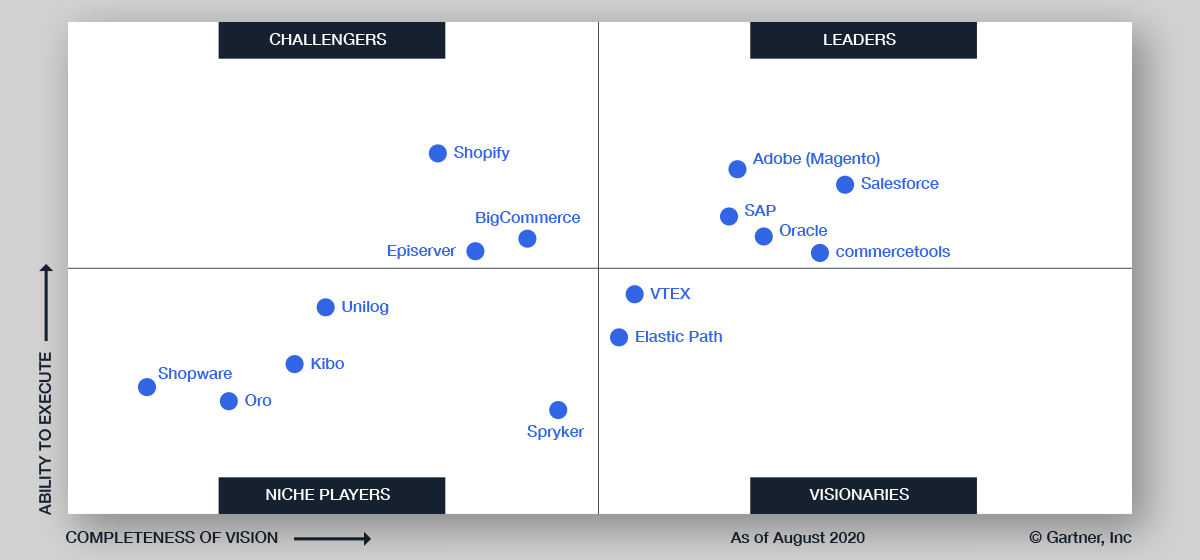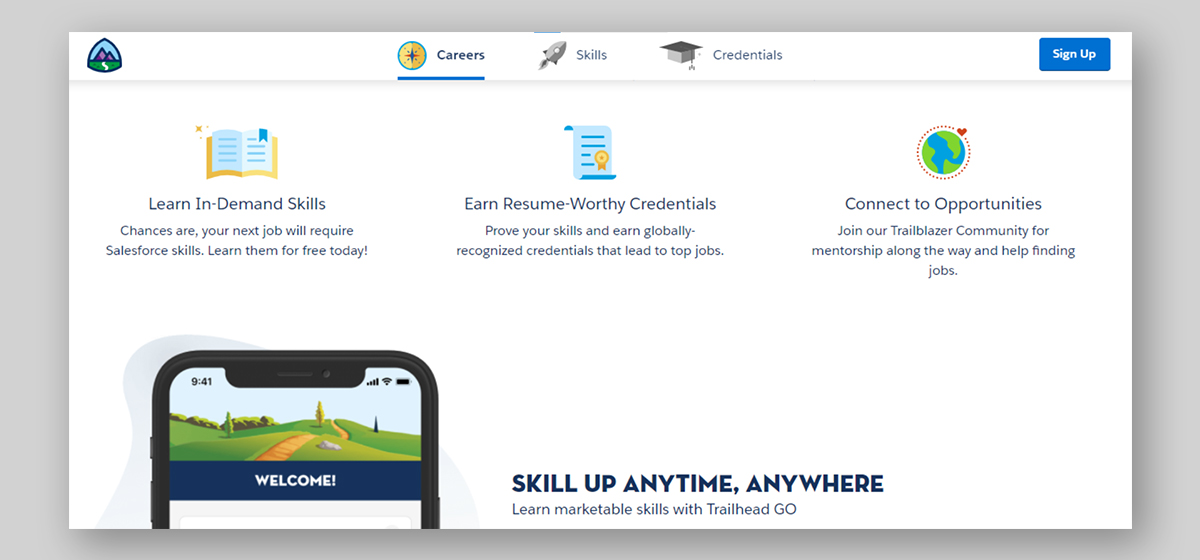SFCC Myths Debunked
Author: Astound Careers

My name is Yaroslav; I’ve been in development for nine years, with more than one year as a Web Development Lead at Astound Commerce. If you are a developer and are hesitant whether to work with Salesforce Commerce Cloud (SFCC) or not, this article is just what you need. We’ll try to debunk some heated rumors about this platform
Ecommerce is currently growing at a high pace and offers a vast abundance of commerce solutions, but not all of them can boast of flexible scalability and proper control over the online commerce process.
Choosing the right platform can increase the growth rate of sales across all online commerce channels. However, sometimes the client may have doubts about a particular platform because they found negative reviews on the internet and do not know that they are just myths.
Myth #1: SFCC is an obsolete platform, and modern businesses don't use it.
Frankly, it is one of my favorite legends. Just imagine for a second that more than 17 years have passed since SFCC (at that time Demandware) came into existence. Over those years, the platform has accumulated enough experience in the ecommerce marketplace, based on ever-evolving customer demands and requirements, that it earned the B2C and B2B Commerce Suite leadership position at the end of 2020, according to Forrester Research*, an independent research firm. SFCC was scored the highest in terms of criteria such as artificial intelligence and machine learning ecosystem, product vision and customer capabilities scaling, order management, and revenue leveraging.
Giant brands like Under Armour, Puma, Adidas, Calvin Klein, L’Oreal, Philipp Plein, and Boohoo have already chosen and are using Salesforce Commerce Cloud, to give just a few examples of SFCC customers.
For Under Armour, for example, the SFCC platform set a whole new standard for mobile shopping. Reduced page download times resulted in a 65 percent reduction in bounce rate, and the introduction of a user-friendly progressive web app (PWA)** interface improved site navigation and tripled the click-through rate.

Salesforce Commerce Cloud’s innovative solutions enable companies to personalize the consumer experience and thus drive sales growth, launch advertising campaigns, use traffic splitting and A/B testing without technical support. Einstein artificial intelligence, built into the platform, provides personalized product recommendations to all site visitors, collects data on customers, and orders and displays items that are frequently purchased together.

Salesforce also provides a number of related customer relationship management system (CRM) and marketing software-as-a-service (SaaS) services that can be integrated into a customer’s solution set. This is where the next common myth about SFCC is rooted.
Myth #2: SaaS solution is not the best choice for running an online business
Salesforce Commerce Cloud is driven by a scalable cloud-based SaaS solution, which often scares away potential customers due to rumors about the risk of data loss. Let’s take a look at the benefits and debunk the myth keeping brands from migrating to the platform.
As a cloud-based product, this system is able to handle huge demand and traffic spikes without prior planning. In the event of a sudden spike in demand, the platform is scaled up in the background without any intervention. The SaaS model is device-independent because it uses cloud technology, providing access to functionality through a web-based application. Consequently, neither partial or complete device replacement nor outages affect your data, because it is kept in a cloud storage.
Instead of buying an expensive software license, users subscribe to a cloud solution as a service. This option of implementation and maintenance is less expensive than the alternative, is open source, and lowers the entry barrier for development and project start-up, especially in the initial stages. Today, both small and large entities are increasingly choosing SaaS because of its flexibility and innovation.

An IBM blog in 2014 predicted that more and more companies would take a SaaS-focused approach to business applications, and it worked, especially in ecommerce.
Another benefit is “seamless” updates, as Salesforce continuously introduces and expands many new features in the background. These are available through the administration panel, often with little or no technical intervention on your part. Consequently, the product owner can focus on business strategy and not constantly worry about the platform–a huge benefit for the customer because technical maintenance and uptime issues are the software provider’s responsibility.
Myth #3: SFCC cannot compete in the same market as Shopify and Magento
Salesforce Commerce Cloud is one of the most in-demand and highly regarded online commerce platforms and has been ranked in the top 15 for the past few years, according to Gartner’s research on the digital market segment***.
The platform was named a Leader in the Gartner’s Magic Quadrant Digital Commerce**** report for 2020, having completed more than two trillion B2B and B2C transactions and allowing customers to purchase goods and services online and in self-service mode.

According to this Gartner report, “leaders” in the space demonstrate the following capabilities:
- Depth of solutions and scale of commercial opportunities (for B2C and B2B)
- Support for large transaction volumes and high revenue levels
- High-quality sales and support services both directly and through an ecosystem of applications, services, and certified integration partners
- Integration of third-party services compatible with the core trading platform
- Cutting-edge innovation, typically in the form of technological updates to trading platforms and product functionality, investments inside and outside of core digital trading platforms, and customer programs enhancing the customers’ ability to succeed
- Distinguished by financial, technical, and organizational viability; continuous development, and customer assessments; often set a competitive benchmark
Myth #4: Ecommerce will not be in demand after the pandemic (shopping habits)
With the advent of COVID-19, the way consumers make retail purchases changed. The standard user experience started transforming immediately, with the usual shopping mall experience changing to online shopping as one of the most important alternatives to the old purchasing format. For example, according to Salesforce’s first-quarter shopping index, in April 2021, the number of unique customers nearly doubled (up 40 percent) vs. the previous year. BOPIS (buy online, pick up in-store) revenue was 27 percent up in the first quarter. In July, Salesforce released its Buying Index for the second quarter of 2020, showing that the number of online shoppers remained consistently high, even though offline locations had gradually resumed operations by that time.
According to another report by Activate Consulting, last year, the volume of global ecommerce has already reached $3.4 trillion, and its further rapid growth is predicted, so by 2024, the world’s ecommerce will grow from $3.4 trillion to $6.5 trillion.
This tremendous momentum was made possible by global isolation. The fact that this was the first purchase online for many consumers and that it was made during the quarantine period is surprising and astounding.
Myth #5: The expert community is poorly represented in the ecommerce services market
This may have been true 10-15 years ago, but now given SFCC’s leading position in the ecommerce market, the number of certified professionals and developers who are just starting their journey is also growing. This is an area where this platform really excels, because there are hundreds of skilled agencies and a huge number of certified and experienced developers.
The SFCC, on its TRAILHEAD platform, provides anyone with access to documentation, the opportunity to prepare for certification, and the opportunity to join a community that will help explore the intricacies of the platform.

I will also share a few useful links:
- Documentation – https://documentation.b2c.commercecloud.salesforce.com/DOC1/index.jsp
- Developer center – developer.commercecloud.com/s
- Github – github.com/SalesforceCommerceCloud
- Salesforce AppExchange – appexchange.salesforce.com
To sum up
Salesforce Commerce Cloud is a product that is improving, getting smarter, and giving developers flexibility on an ongoing basis. A variety of templates and commercial APIs for creating customized implementations and a community of more than 2.3 million people will never leave you alone with a difficult task.
Consequently, if you chose SFCC as your platform for implementing both B2C and B2B ecommerce solutions, you made a smart move.
* Forrester Research is an independent research and advisory firm founded in 1983 providing its clients with data on the impact of information technology on businesses and customers. Reports are based on annual surveys of more than 675,000 consumers, business and technology leaders worldwide; rigorous and objective methodologies, including Forrester Wave™ assessments.
** PWA (progressive web app) is a technology in web development that visually and functionally transforms a website into an app. A mobile app in the browser.
*** Gartner is a research and consulting firm specialized in information technology markets. It is best known for introducing the concept of ERP and for its regular “Magic Quadrant” and “HYPE Cycle” research reports. Gartner research is regularly featured in such publications as the Financial Times, The Wall Street Journal, The New York Times, Der Spiegel, The Register and ZDNet. Along with IDC and Forrester, it is considered a key researcher of IT markets.
**** A market segment analysis report, which includes an image with the distribution of suppliers by specified quadrants. Every year, the company produces several dozen “magic quadrants” on a regular basis.
References:
https://business.adobe.com/resources/reports/Gartner-Magic-Quadrant-for-Digital-Commerce-2020.html
https://astoundcommerce.com/work/
https://www.ibm.com/blogs/cloud-computing/2014/03/18/what-is-software-as-a-service-saas/
https://enlyft.com/tech/products/demandware
https://trends.builtwith.com/websitelist/Demandware
https://www.featuredcustomers.com/vendor/salesforce-commerce-cloud/customers
https://customerthink.com/how-is-coronavirus-evolving-e-commerce-businesses/